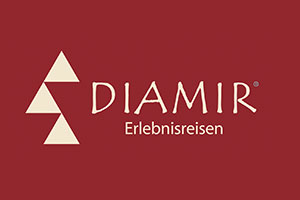Angola
Travel tips for angola
Top 5 Experiences
A vast country with a long coastline and central plateau, Angola thrusts inland across Southern Africa Highlight include:

Luanda
The nation’s capital is a thriving, busy metropolis. Explore the Presidential Palace, the picturesque Marginal promenade shoreline, and the historic Old Town (Cidade Alta).

Tundavala Fissure
This amazing natural wonder, which is close to Lubango, offers sweeping views of the surrounding area and a deep abyss. This location is well-liked for hiking and photography.

Benguela
Travel between Lobito and Benguela on the picturesque Benguela Railway, a historic train route. The path provides a unique opportunity to discover the country’s landscapes and gives breathtaking views of the coast.

Kissama National Park
This park, not far from Luanda, offers a chance to see a variety of wildlife, including elephants, lions, and antelope, in their natural habitat. It’s an ideal destination for a safari or wildlife photography.

Kalandula Falls
These impressive waterfalls, located on the Lucala River, are one of the largest and most beautiful falls in Africa. The surrounding area is also a great place for hiking and exploring the lush landscapes.
Tourist infrastructure
In Angola, transportation options include domestic flights, buses, and a limited railway network. Domestic flights and train journeys come with certain risks due to irregular maintenance. The availability of buses is relatively low, and they often operate irregularly, with overcrowded conditions and confusing routes for visitors. Regular taxis are limited and can be costly. An alternative is to use ride-sharing apps like Yango, Heetch, or T’Leva. Informal taxis and minibusses, known as „Candongueiros,“ are not recommended for those lacking local knowledge or language skills.
The accommodation options in Angola are limited but are gradually expanding to cater to the growing tourism sector. Visitors can find a range of hotels, from luxury to more budget-friendly choices, mainly in major cities like Luanda. However, availability and standards may vary, and it’s advisable to book accommodation in advance, especially during peak tourist seasons.
Climate and travel season
On the coast and in the north of the country, the climate is tropical, while in the highlands and the south, it’s temperate-tropical. In the southeast, it’s hot and dry.
In Angola, the rainy season starts in the north in September, in the south towards the end of November, and lasts until April in both regions. During this time, one can expect heavy rainfall and floods.
Visa and entry
Since October 1, 2023, German nationals can enter the Republic of Angola for tourism and private visits without a visa and stay visa-free for up to 30 days. Upon entry, a valid passport and proof of yellow fever vaccination are required.
Stories
International Hotel Chains Are Driving the Hotel Boom in Africa
Frankfurt, 03 April 2024 - The "Big 5" of global hotel chains - Accor, Hilton, IHG, Marriott International and Radisson ...
Internationale Hotelketten treiben den Hotelboom in Afrika voran
ReThinking Africa Initiative setzt sich für Investitionen in Afrikas Tourismuswirtschaft ein Frankfurt, 03. April 2024. Die „Big 5“ der globalen Hotelketten ...
Voice4Africa x ReThinking Africa News March
KLEBER Group x ReThinking Africa News March 2024 Content Foreword Investment in Africa's tourism industry as a driver for sustainable ...
Our Partners in Angola
Impressions from Angola
(Zum Vergrößern anklicken)
Visa, Entry, and Updates
Current accessibility
Corona precautionary measures
Status: 03.03.2022

















